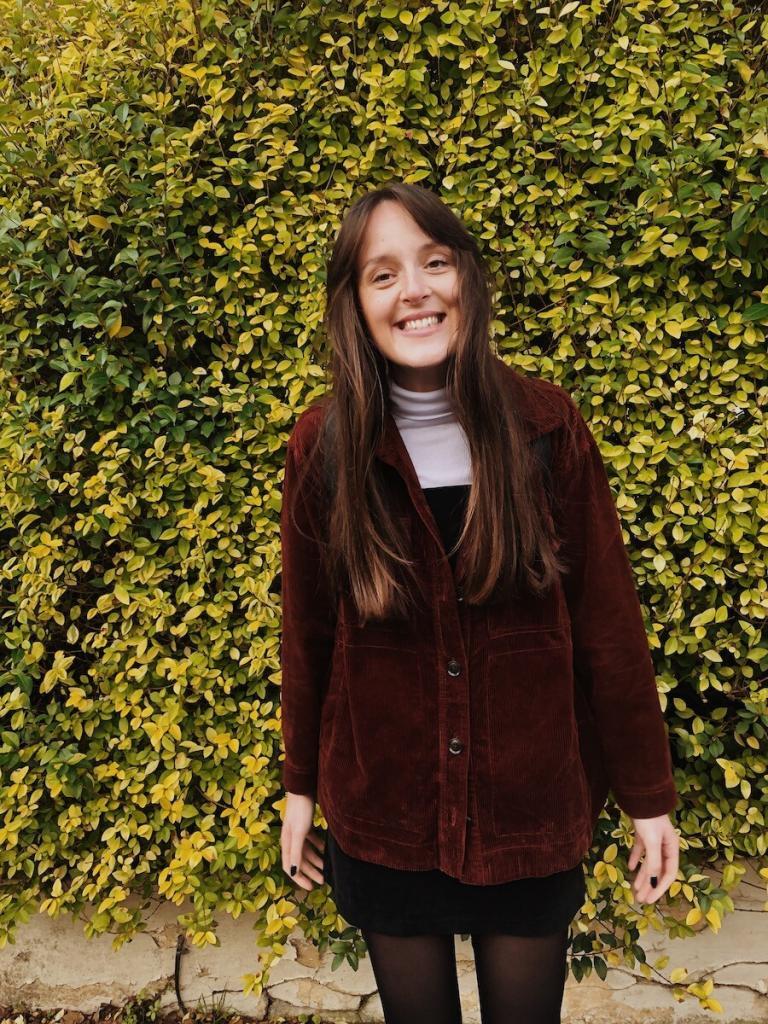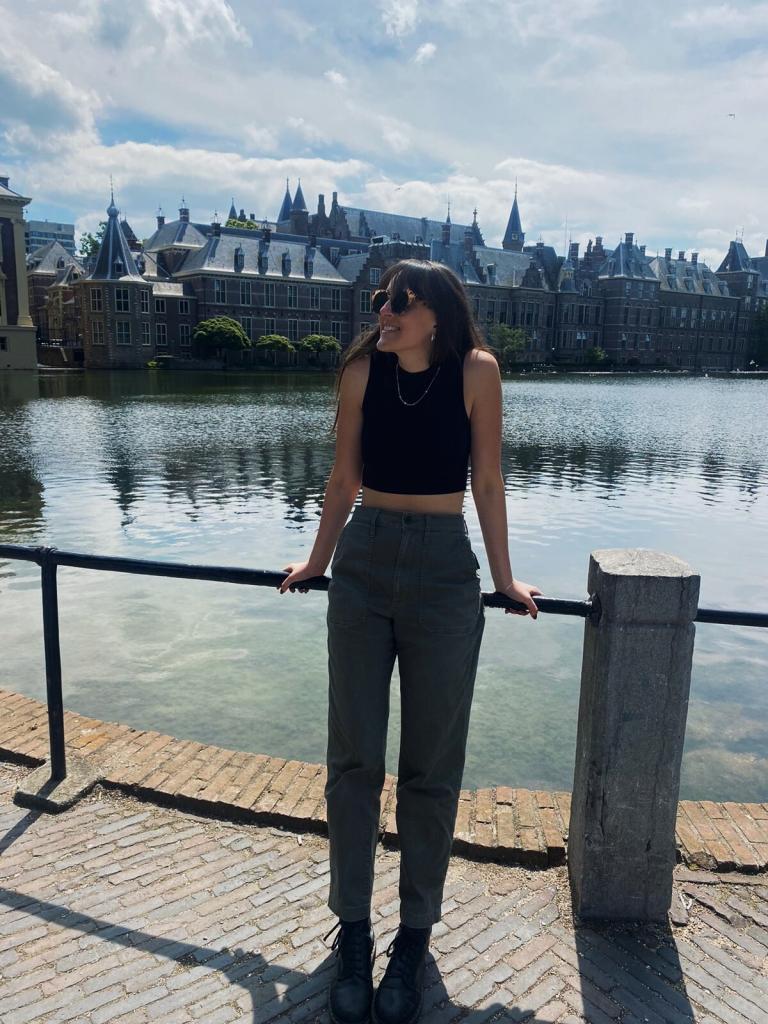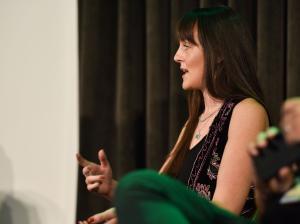Natasha Khullar Relph speaks to the TikTok innovator and marketer on how authors can make the most of the platform to sell their books.

Georgia Henry is the Senior Campaign Manager at Rocket, a content agency that creates end-to-end digital marketing campaigns, and an early innovator in the world of BookTok. Her campaign for They Both Die at the End went viral and has been viewed by 5.1 million people.
Henry holds a Master’s degree in Children’s Literature and is passionate about helping authors discover the power of TikTok marketing. She spoke to us about the potential of BookTok and how authors can get involved.
How’d you find your way to Rocket and publishing in particular?
I was at Goldsmiths University doing a Master’s in Children’s Literature and specifically looking at publishing within that. I just met somebody along the way who told me they marketed books. I was very excited by that. So I came and did some work experience with Rocket and then gradually ended up working with them as a campaign executive.
That was three years ago, and since then it’s changed quite a bit. But fairly early on in my role here, I started working on TikTok. This was pre-books, and I knew it as a social platform, but since Rocket works in the youth and family space, we were all quite intrigued by it.
My first TikTok campaign was for The Valentines by Holly Smale, which is interesting because that’s not the kind of thing I thought I’d be working on. But I worked with kidfluencers—so they’re influencers who are under 16, very closely managed—and worked with some of them to promote The Valentines. They took it with them on their summer holidays. It was just a really sweet campaign and actually worked really well.
Then BookTok happened. Everybody was in lockdown and we thought, how can we offer this out to our publishing clients? I’ve always been attracted to publishing but specifically, I started very much in the kids space. There are all these books created by adults, for children, and then the person purchasing it is the parent. It’s an interesting purchasing cycle. In terms of messaging, I find that to be fascinating. So I was looking into that, and then from there got into BookTok. It’s been a huge part of my job for the past three years, and it doesn’t seem to be going anywhere.
You started out with the idea of working in children’s literature, but instead of editorial, you’re working on the marketing side. How did that happen?
It’s interesting that because I feel like everybody who does English literature wants to work in publishing. The role there is that of an editorial assistant. And it’s not that I didn’t. I applied for tonnes of EA jobs, but I wasn’t getting anywhere. Then I was doing a publishing course within my masters and I started thinking about what skills I had. I thought I’m actually not that good at picking up little things that editorial have to pick up on, whereas when we were talking about influencers and book clubs and things that have happened within the creator digital space, I was fascinated.
I really liked how creative you can be, and I also really enjoy the PR side of things. How you can get everyone talking about something. Because of our niche with kids, well, you can’t really market directly to the child, so you’ve got to create a way that parents will want to spend money on it, but also the kid will want to read it. I think that’s such a challenge. And it’s really fun.
In terms of your day-to-day role, do you work directly with publishers? How would a campaign you create for them go?
All my clients are publishers. Sometimes I do work with authors directly. Generally that will either be somebody who’s self published and wants to work with us independently, or it will be if I’m working on a campaign. Otherwise, I don’t work too much with the authors directly.
The publishers will either come to us or I will pitch. They’ll say, okay, I’ve got X amount of budget for this book that’s coming out, what do you think, and then it’s my job to go back to my team, have an idea session, and come to them with a proposal of what I think we should do for a campaign. If they say yes, and hopefully they do, and they love our ideas, we then also execute that for them. So if it’s TikTok, for example, I will go find all the talent, brief them, explain the book to them, have a creative session with them, and think about what we can do that is trending. We review the content and make sure it works. Then I’m measuring the success of that and having a chat with my client about her sales so we can take insights from what we’ve done.
If you’re an author who wants to do marketing independently, and you were trying to do this sort of campaign, what would you have to think about and how much would it cost?

It’s one of those things that depends on what you do. I would say your best bet to start with would be to talk to someone you trust, who’s on the marketing side on a consultancy basis. I’m very happy to talk to people, but it could be anyone that you trust to give an impartial opinion. They might tell you that you’re better off leveraging relationships you’ve already got rather than investing. Or you’re better off making more appearances, which is a time investment instead of a financial investment. If they say you should do a digital campaign because your book would fit into a market trend, you could start at around £1,000. There’s really no ceiling on these things, is there? I think around £2,000-£5,000 is a really healthy campaign standard.
In advertising, there is a point below which it really doesn’t make an impact. Even for Facebook advertising or digital advertising, there is a minimum spend.
Totally. If you’re going to do it, you may as well make a splash, otherwise you can’t gain any insight either.
Because when people see it multiple times, they talk about it and so it has that rolling impact. Whereas if you just do it once with a small budget, while it might have a tiny impact, it never gets momentum, it never really gets to grow.
Exactly. And the same goes for influencers.
If you spent under a certain amount and that only bought you one influencer who’s going to post once, what if the algorithm doesn’t favour them that day and no one really sees that post? It’s not their fault. It’s not your fault. But it does mean your spend hasn’t really gone anywhere. If you can invest a little bit more and get a couple of people posting a couple of times, you’ve just got more chance of cutting through.
And because they’re all in the same market, people tend to think, oh, this book is everywhere, even if it’s only just four people talking about it. But you follow those four people, so it feels like it’s got a wider reach. Whereas if it’s just one, you can see it and forget it immediately.
Yeah, exactly. I love when you see people commenting this is everywhere. It’s because we put it everywhere.
For a lot of authors, it’s like, here’s yet another platform I now need to be on. How important is it that authors think about BookTok, and how should they be thinking about it? Should they be on it? Should they be working with influencers?
I think it’s always good when authors, self-published or otherwise, have an insight into what’s going on in the industry because then if someone says we should do a BookTok campaign, you have some idea of what that would look like.
In terms of whether they should be on it, personally, I’m pretty much of the belief that it’s not the author’s job. It’s the marketing team’s job to create noise about their book. They’re not the brand unless they want to be. There are lots of authors who love being on social, and that’s fantastic. It can do wonders for them and for their books.
I would say, if you’re going to get on TikTok, make sure it’s a thought-through process. Don’t just post in the two weeks leading up to your book dropping and then log out and never post again. Without sounding too harsh, I think that could potentially do more damage than good. If you want to be on social, only be on the platforms where you can actually maintain presence.
If you’re thinking, I’m already on Twitter and Instagram and I feel like it’s a lot, don’t worry about TikTok. Let your publisher take care of that. TikTok doesn’t work for every single book. Don’t feel pressured to get 50,000 followers on there overnight. It’s not for everyone.
Well, you just became everyone’s favorite person. Because what we’re told repeatedly is build a brand, build a brand, build a brand, be everywhere, do all this content. What advice would you give to somebody whose publisher isn’t investing in marketing their book? What is the best way they can leverage the opportunities?
This is where you would leverage other creators on there. If your publisher has a platform on TikTok, you could ask to create one video. Or have the publisher create one video that’s centered on your book and sits organically on the publisher’s page. A lot of smaller publishers have TikTok as well.
In terms of creators, see if you can find smaller groups. We would call an influencer someone who has upwards of 10k followers, but you can start to engage with people who might have significantly less. Everyday readers, who love your genre or style of book. Have a little chat with them, ask if you can send a copy. Then you’re building sentiment within a very small community rather than being this huge brand and talking to everybody at once. You’re actually having discussions and conversations, offering something back to a community that loves talking about books.
I like the idea of partnering with influencers and other creators rather than building a presence on each new platform. There are a lot more opportunities in the creator-led model to do this that didn’t exist in the same way even five years ago. Can you explain how it works?
So there are two different approaches. You have the influencer partnership, which is where I would phone up Abbysbooks or one of the big TikTokers and say hi, I’d love to sponsor a couple of videos on your channel. It’s for this book.
If your book is high fantasy and you’ve seen a TikTok book go viral, and you think, I’m a competitor to that, you could definitely say to your publisher, I’d love to try this. Most publishers are receptive, from what I see anyway, to what their authors like. And you could partner with influencers.
I think the best thing to do for creator-led stuff is to trust the creator. If you send someone a script and have them read off it, that’s not creator-led. Whereas if you say to them, can you film what you would like, but talk about the book and show it a couple of times, some of the best content I’ve seen has come out of that.
We had the campaign for They Both Died at the End and I worked with Abby on that. She’s a very fast reader. She read the book in a day and documented each part of the book. At the end, she was crying, and that video has got over 5 million views. That’s all her. She worked on it, in partnership with Rocket, but it was all her idea. It was amazing.
Let’s talk about the second model, which is to ask them to create videos that you can then use on your platforms or in ads. Can we talk a bit about that?
That works a little better if you want to be more controlled about where the content is going. With Tiktok, an influencer could post and it’s not just going out to their followers, it can kind of appear anywhere on the platform. If you want to be a bit more controlled and run a more granular advertising campaign, or especially if you want to target a younger audience, I would say it’s more brand safe and more cost effective to have an influencer appear in content and then you’re in control of distribution.

If you’ve got a YA, you could get a family appearing in the content, enjoying the book together. If you work with them on an influencer partnership, it’s on their channel. You have to deal with commercial usage rights, exclusivity, where it’s going and how long for, and how much money you’re putting behind it. It’s totally doable, but it is a lot. Where if you work with talent who are going to appear on your content, then we manage a release form, which has all the legalities on there. And then the publisher or the author completely own the content and an use it at will.
In your opinion, does TikTok sell more books than any other social media platform?
Yes, I would say so. Historically, Facebook is better at driving clicks, but in an organic and influencer sense, TikTok is very effective. So yes, I would say so.
Do you have any advice for authors who’re excited to get on TikTok, especially to sell books?
My top tip would be: don’t overthink it.
Don’t worry about the algorithm. Nobody understands it. It is crazy. It is unpredictable. You could spend two hours curating the most beautifully edited video and it’ll go up and not get any views. Or you could hold up a camera, just do something silly, and it goes viral.
Create content that you enjoy, that feels genuine to you. Have fun.
And, if you can, engage with trends and the rest of the book community that are on there. They will welcome you.
—
To connect with Georgia and work with her, connect with her on Twitter.
Sign up for The Wordling
Writing trends, advice, and industry news. Delivered with a cheeky twist to your Inbox weekly, for free.